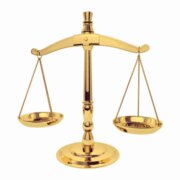Best Probate Lawyers in Ireland
Share your needs with us, get contacted by law firms.
Free. Takes 2 min.
Or refine your search by selecting a city:
List of the best lawyers in Ireland
About Probate Law in Ireland
Probate law in Ireland is the legal process through which a deceased person's estate is administered. This process includes proving the validity of a will (if it exists), appointing executors or administrators, settling debts and taxes, and distributing the remaining assets to the rightful beneficiaries. Probate ensures that the deceased's wishes are honored and that their affairs are settled in accordance with Irish law. If there is no will, the estate is distributed according to the rules of intestacy, which are predefined by law.
Why You May Need a Lawyer
While it is possible to handle probate matters without legal representation, there are several situations where hiring a probate lawyer in Ireland can be beneficial:
- Complex Estates: If the deceased owned a large or complex estate that involves multiple properties or business interests, a lawyer can help navigate these complexities.
- Disputed Wills: If family members or other parties contest the will or claim the deceased was coerced or lacked capacity, legal advice is crucial.
- Tax Implications: To understand and manage potential inheritance tax or capital acquisitions tax liabilities, legal advice is valuable.
- Intestate Estates: If no will exists, a lawyer can assist in applying for letters of administration and ensure the estate is distributed according to legal guidelines.
- International Assets: If the deceased held assets abroad, a lawyer with experience in international probate can provide essential guidance.
Local Laws Overview
In Ireland, probate law is governed by several key pieces of legislation, including the Succession Act 1965, which lays out the rules of intestacy and the duties of executors and administrators. The Probate Office, part of the High Court, is responsible for overseeing the administration of estates. Key aspects of local laws relevant to probate include the need for a grant of probate or letters of administration before assets can be distributed, and the legal obligations of executors to ensure all debts and taxes are paid before distribution to beneficiaries. Additionally, the Capital Acquisitions Tax Act imposes taxes on inheritances, depending on the relationship to the deceased and the value of assets received.
Frequently Asked Questions
What is probate?
Probate is the legal process of administering a deceased person's estate, ensuring debts and taxes are paid, and distributing remaining assets to beneficiaries.
Is probate necessary if there is a will?
Yes, probate is necessary to validate the will and legally appoint the executor to manage the estate's distribution.
What happens if someone dies without a will?
If a person dies intestate (without a will), their estate is distributed according to the rules of intestacy specified in the Succession Act 1965.
How long does the probate process take?
The probate process can vary in duration but typically takes six to nine months. Complex estates may take longer to administer.
Can a will be contested?
Yes, a will can be contested on various grounds, such as the testator's lack of capacity, undue influence, or improper execution.
What taxes are associated with inheritance in Ireland?
Beneficiaries may be liable to pay inheritance tax, known as Capital Acquisitions Tax (CAT), depending on their relationship to the deceased and the inheritance amount.
Do all assets go through probate?
No, jointly held assets or assets with a named beneficiary typically bypass the probate process and transfer directly to the co-owner or beneficiary.
What is a Grant of Probate?
A Grant of Probate is a legal document that confirms the executor's authority to administer the deceased person's estate after a valid will is presented.
How are debts handled in probate?
All outstanding debts and taxes must be paid from the estate before any distribution is made to beneficiaries.
Can an executor be held liable for their actions?
Yes, executors have a fiduciary duty to act in the best interest of the estate and beneficiaries and can be held liable for breaches of these duties.
Additional Resources
For further guidance on the probate process in Ireland, the following resources and organizations can be highly beneficial:
- The Courts Service of Ireland: Provides detailed guidance on applying for probate and accessing forms.
- Citizens Information: Offers comprehensive advice on a wide range of legal topics, including wills and probate.
- The Law Society of Ireland: Provides a directory of solicitors and information on legal rights related to probate.
- Revenue Commissioners: Offers information on Capital Acquisitions Tax obligations and thresholds.
Next Steps
If you find yourself in need of legal assistance in dealing with a probate matter, consider taking the following steps:
- Gather Information: Collect all relevant documents, such as the will, death certificate, and details of assets and liabilities.
- Consult a Professional: Reach out to a solicitor experienced in probate law for an initial consultation to discuss your situation and understand your options.
- Consider Mediation: If disputes arise, consider mediation as a way to resolve issues amicably and avoid lengthy legal proceedings.
- Stay Informed: Keep yourself updated with the legal process, timelines, and responsibilities to ensure smooth administration of the estate.
By taking these steps, you can navigate the probate process more effectively and ensure the deceased's estate is managed appropriately and lawfully.
Lawzana helps you find the best lawyers and law firms in Ireland through a curated and pre-screened list of qualified legal professionals. Our platform offers rankings and detailed profiles of attorneys and law firms, allowing you to compare based on practice areas, including Probate, experience, and client feedback.
Each profile includes a description of the firm's areas of practice, client reviews, team members and partners, year of establishment, spoken languages, office locations, contact information, social media presence, and any published articles or resources. Most firms on our platform speak English and are experienced in both local and international legal matters.
Get a quote from top-rated law firms in Ireland — quickly, securely, and without unnecessary hassle.
Disclaimer:
The information provided on this page is for general informational purposes only and does not constitute legal advice. While we strive to ensure the accuracy and relevance of the content, legal information may change over time, and interpretations of the law can vary. You should always consult with a qualified legal professional for advice specific to your situation.
We disclaim all liability for actions taken or not taken based on the content of this page. If you believe any information is incorrect or outdated, please contact us, and we will review and update it where appropriate.
Browse probate law firms by city in Ireland
Refine your search by selecting a city.











